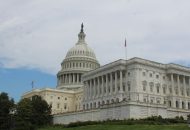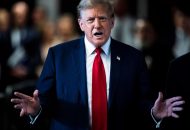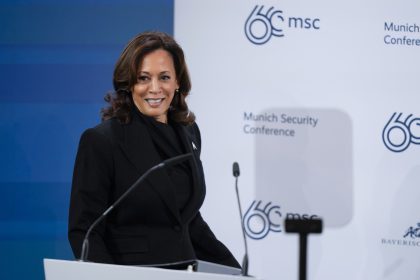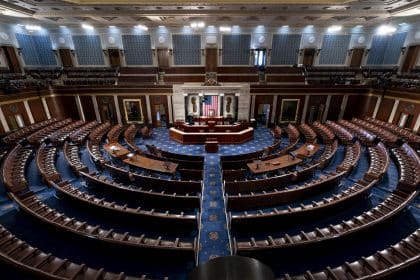Bill in Congress Would Punish China for Intrusions in Hong Kong Autonomy

WASHINGTON – Congress moved closer Thursday to approving economic sanctions against China for its interference with Hong Kong’s independence.
Most Democrats and Republicans on a Senate committee joined in saying the United States must take action to condemn China’s plan to crack down on Hong Kong’s civil liberties.
“There’s bipartisan interest in getting legislation like this done as soon as possible,” said Sen. Pat Toomey, R-Pa., during a Senate Banking, Housing and Urban Affairs Committee hearing.
Before the United Kingdom handed over control of its colony to China in 1997, the Chinese agreed to keep Hong Kong autonomous from the mainland government. It would continue to have its own government, free press and free enterprise policies under the agreement.
Now, Hong Kong accuses China of gradually eroding its freedoms and breaking its promises of autonomy.
Protests in Hong Kong flared last month when China’s Central People’s Government approved a “national security” bill to squelch dissent in Hong Kong.
It would allow China to jail anyone it considered “subversive” for speaking out against the government. It also gives China greater control over Hong Kong’s financial and educational systems.
The Hong Kong government was not given an opportunity to vote on it.
U.S. Secretary of State Mike Pompeo told Congress May 27 that Hong Kong was no longer separate from China. As a result, it no longer merits the customs and trade preferences the United States historically has given Hong Kong, he said.
A leading bill pending in Congress would freeze any property in the United States owned by Chinese officials who implement the Hong Kong national security law. In addition, U.S. banks would be prohibited from transactions with the Chinese officials or their business partners.
The ban could extend to Chinese banks that regularly do business in the U.S..
Toomey, who co-sponsored the bill, said it “penalizes the banks that choose to finance the erosion of Hong Kong’s autonomy and put marginal profits ahead of basic human rights.”
Most Democrats agreed China’s gradual takeover of Hong Kong was intolerable but they also questioned whether aggressive economic sanctions were the best response.
Sen. Sherrod Brown, D-Ohio, said sanctions were appropriate but cautioned that “new mandatory secondary sanctions on large foreign banks may be ineffective and have unintended consequences harmful to our strategic interests.”
Other Democrats, such as Sen. Bob Menendez, D-N.J., criticized President Donald Trump for not acting decisively against China’s intrusions into Hong Kong’s autonomy.
“He said he stood with [Chinese] President Xi,” Menendez said.
He added, “Unfortunately, President Trump still has not made clear what he will do to make Beijing pay a price.”
A key witness during the hearing Thursday was Lee Cheuk Yan, vice chairman of the Hong Kong Labour Party, who described protests throughout the city-state.
Earlier in the day, he participated in a candlelight rally to commemorate the 31st anniversary of China’s Tiananmen Square massacre during a protest advocating for greater democracy.
He told of police with loudspeakers warning protesters.
“They are frightening people with all these scary threats about breach of the law,” Lee said while speaking remotely during the Senate hearing.
He said he is willing to accept the consequences of his dissent.
“We Hong Kongers will fight on,” Lee said.
























